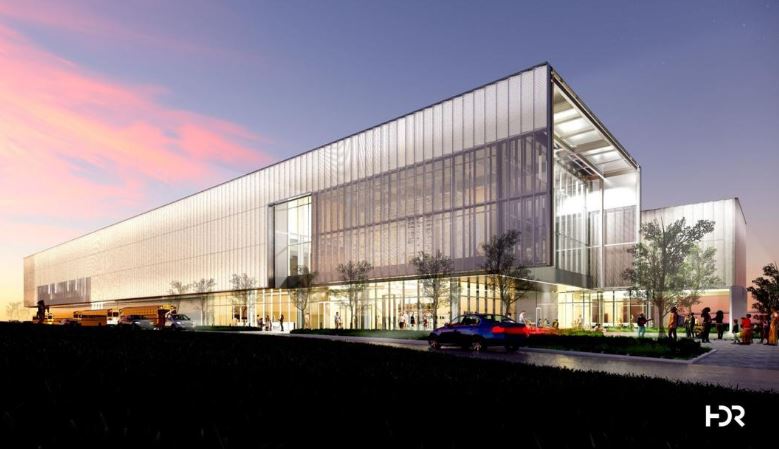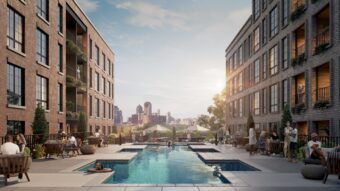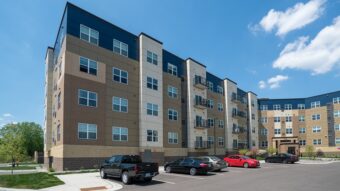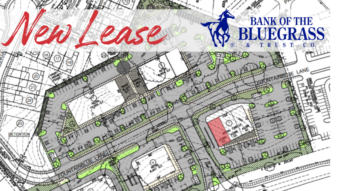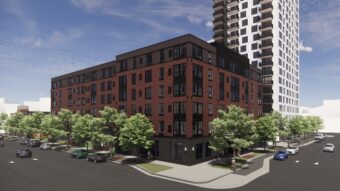Jon Blumenthal, partner with Omaha-based law firm Baird Holm, said that 2020 has obviously been a year unlike any other. But even with the challenges brought by the pandemic, Omaha and its commercial real estate market have remained resilient, Blumenthal said.
One of the reasons for this? Blumenthal points to the diverse industries that call Omaha home. The city doesn’t rely on any one business type. That offers protection during challenging economic times. If one industry is struggling, the odds are good others are performing well.
“We don’t put all of our eggs into one basket,” Blumenthal said. “We are strong across all commercial sectors. There is a great diversity of developers in this town who continue to make good decisions to be forward-thinking without being overly aggressive. That has helped keep the ship steady here.”
Blumenthal isn’t alone. Commercial real estate professionals working throughout the Omaha market echoed his optimism. They said that Omaha and its surrounding communities continue to see plenty of commercial real estate activity today, even during the pandemic. And they all point to Omaha’s diverse economy, dedicated workforce and steady nature as reasons for this success.
Jay Noddle, president and chief executive officer of Omaha’s Noddle Companies, said that aside from retail and entertainment, Omaha’s commercial real estate market is continuing to grow, even as the state and country continue to grapple with the impact of COVID-19.
“There was, fortunately, a lot of momentum in our market before the pandemic,” Noddle said. “There was a lot of office construction underway. There was a lot of multifamily construction that was underway. None of that has slowed down. I don’t think any of those projects have experienced any COVID-19-related shutdowns or even any big slowdowns with construction. The single-family home business is doing really well, too. There is still momentum in our market.”
COVID’s impact
This isn’t to say that COVID-19 hasn’t impacted Omaha. It has. But the city hasn’t had the larger spikes of COVID cases that some other bigger cities across the country have experienced.
Omaha also didn’t endure particularly long or harsh lockdowns or stay-at-home orders. Businesses have mostly been able to remain open during the pandemic. This has helped these businesses weather the COVID storm, Blumenthal said.
John Heine, broker with Omaha’s Investors Realty, said that he is surprised at how well Omaha’s commercial real estate market is performing today. The economy in the Omaha area isn’t experiencing the same freefall that some of the larger cities in the country are fighting through, he said.
The Omaha market had been performing well before the pandemic hit. But even as commercial deal volume was rising, developers didn’t overbuild. They remained cautious, making sure supply remained in line with demand.
“We haven’t overbuilt in any one sector,” Heine said. “The demand we have had has kept up with the supply that has been built.”
The power of multifamily
Several commercial sectors, then, have remained strong even during the pandemic. Blumenthal points to multifamily. He said that there is still a tremendous demand for apartment units throughout the Omaha market.
“Throughout all parts of town, developers are working on good multifamily projects today,” he said.
Blumenthal points to the redevelopment of the former Shark Club bar and club at 72nd Street and West Center Road. Developers will soon break ground here on a 290-unit apartment building that will rise in the heart of the city.
“There is a tremendous demand for apartments in Omaha,” Blumenthal said.
Heine said that the Omaha market will see about 2,000 new multifamily units delivered during the next 12 months. That’s a larger amount than in previous years. But even with the influx of new units, Heine said, the vacancy rate in the multifamily market here is expected to remain low.
“We didn’t get too far ahead of our skis while we were in the hyper-supply phase of the market,” Heine said. “We have never been ridiculous in the number of units we have put out into the market. We are absorbing them as fast as we are building them.”
Heine said that he hasn’t seen a great shift of renters wanting to leave downtown, urban areas and move to suburban locations. Some markets are seeing this, as renters choose to leave the middle of big cities — where many of the amenities that attracted them to the location now shuttered — for the wider open spaces of the suburbs.
In Omaha, though, multifamily vacancy rates remain low in downtown and Midtown, Heine said.
“We still hear that those markets are staying strong,” Heine said. “Will it change in the next three to six months? No one knows that. But right now, the multifamily market in those urban areas is still strong.”
Retail challenges
Retail, of course, is not doing as well. Fortunately, Omaha isn’t seeing too many retail closings, Blumenthal said, thanks largely to the fact that lockdowns here were limited in duration. There’s even been some new retailers arriving in the area, highlighted by the opening of Topgolf in July.
Local malls are working through uncertainty today, Blumenthal said. But owners have worked with tenants on rent deferment and abatement packages to help keep retailers afloat during the pandemic.
“Retailers in Omaha are experiencing the same things that retailers in most other cities are going through,” Blumenthal said. “I have spent a lot of my time lately working on lease amendments to help tenants out.”
Noddle said that one of the keys to boosting future retail in the city lies in the massive downtown makeover that is now taking place. Omaha is redeveloping its former Central Park Mall in downtown, a park that was renamed Gene Leahy Mall in 1992, and transforming it into a new urban oasis, with a goal of improving public space on both sides of the Missouri River.
The hope, of course, is that this downtown revitalization effort will attract more residents, businesses and visitors to the area, something that will improve the fortunes of retailers throughout downtown Omaha.
“Our huge downtown makeover will be the anchor for retail,” Noddle said. “That project is on schedule and moving forward. It will be such a positive for this city.”
One addition to the downtown about which Noddle is particularly excited is the new $101 million science museum planned to rise at Omaha’s Lewis & Clark Landing on city park land. Construction is scheduled to begin on the science center — which had not yet been named as of the writing of this story — sometime this fall.
“This is going to be a great project for our city,” Noddle said. “Philanthropic initiatives like that have all gotten done during this pandemic. That is such a positive for the community.”
Noddle pointed to the ImagiNE Nebraska Act, which Gov. Pete Ricketts signed into law on Aug. 17, as another positive step that the state of Nebraska has taken even during the pandemic. This legislation is designed to promote investment in distressed and rural areas. It provides a host of tax incentives to encourage this investment.
“There is a lot of stability in Omaha,” Noddle said. “On the employment side, a lot of businesses have been able to make it through these tough times. We have been working remote, but we haven’t laid anyone off. No one at our company took a pay cut. We didn’t skip a beat. A lot of Omaha businesses have chosen to do that same thing. I’d say the majority of them have done this.”
The hotel and tourism industries are struggling, too. But that hasn’t kept new hoteliers from arriving in the city.
The Kimpton Cottonwood Hotel is opening in the fall in Omaha’s Blackstone District. A Marriott Autograph Collection hotel is being built in the Landmark tower at 13th and Farnam streets. And construction is almost done on the Peregrine Omaha Downtown, Curio Collection by Hilton at 203 S. 18th St.
“These are all new flags for Omaha,” Blumenthal said. “Obviously, we’ve taken a hit to our tourism and convention business this summer like every other city in the country. We couldn’t hold the College World Series or the Berkshire Hathaway annual meeting. The Olympic swim trials were canceled. We were expecting and counting on those events. But we are hopeful that the world will slowly return to normal and that we can host those events in 2021. We think the demand for hotels will be there in 2021.”
